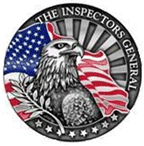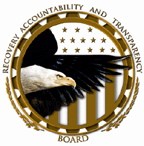Welcome. This is the first of regular reports I will be making to you on the Recovery Board's oversight of spending under the American Recovery and Reinvestment Act of 2009.
Today, on Recovery.gov, we are introducing an improved mapping system allowing users, with simple clicks of their mouse, to view major awards in their own home towns. Youll find the names of the recipients, the amounts of the awards, the locations of the work and much more. In the months ahead, you will see many more improvements to Recovery.gov – more data, more information, more news.
The Recovery Boards job is twofold: to make sure that Americans know precisely what is happening with their federal tax dollars, and to hold accountable recipients who have been entrusted with those funds. Our goal indeed, our mandate, is to keep you fully informed.
Starting From Scratch
 President Obama appointed me chairman of the Recovery Board on February 23. I took this job for one simple reason: As the Inspector General at the Department of Interior and earlier in my career in other federal jobs, I had continually raised concerns about the lack of transparency and accountability in government. Now, I figured, I could be part of an historic exercise in transparency and accountability. For me, the opportunity was too hard to resist.
President Obama appointed me chairman of the Recovery Board on February 23. I took this job for one simple reason: As the Inspector General at the Department of Interior and earlier in my career in other federal jobs, I had continually raised concerns about the lack of transparency and accountability in government. Now, I figured, I could be part of an historic exercise in transparency and accountability. For me, the opportunity was too hard to resist.
Over the last four months, we've been rapidly building a first-class work force. With the help of the other 12 federal Inspectors General (IGs) who serve on the Recovery Board, the staff and I have put together a formidable information technology operation and begun a wide array of accountability activities.
In April, we began an outreach program with the public, holding an electronic forum for website development ideas. We also initiated regular meetings with senior contract and grant officials in federal agencies responsible for disbursing Recovery funds. And we began consulting with local and state oversight officials.
At the same time, we have kept Congress thoroughly informed of our activities. In early August, for instance, I am scheduled to provide another status report to the Senate Committee on Homeland Security and Governmental Affairs. In the fall, I will report again to the House Committee on Oversight and Government Reform.
Meanwhile, the Recovery Board staff has been looking intensely at grants and contracts already awarded under the $787 billion Recovery Act program. We have referred significant problems to Inspectors General, while alerting agencies to lesser issues, such as administrative errors in contract awards.
What's Next
 Every morning, I look at Recovery.gov and I know that we have a long way to go. But we have a solid plan and we are executing it.
Every morning, I look at Recovery.gov and I know that we have a long way to go. But we have a solid plan and we are executing it.
For years, the Environmental Protection Agency has collected environmental data from all 50 states plus the U.S. territories. Early on, our technical team identified EPA as a government leader in developing best practices for collecting and reporting large amounts of data on a website.
Now, under an interagency agreement with the EPA, we are developing a central reporting system for recipients of Recovery Act funds to submit quarterly reports on their use of the money. This system, FederalReporting.gov., is not a public website but all recipient reports posted there will be instantly available to us at Recovery.gov and posted almost immediately for public inspection.
Under a separate contract awarded by the General Services Administration, we are working with a new design team to upgrade Recovery.gov to a Web 2.0 site that is, a second generation website that will be user friendly, interactive and provide you with state-of-the-art mapping technologies that will improve your understanding of the data we are displaying.
Let me be clear: We will be displaying vast amounts of data. It is essential that this data be easy to navigate and analyze. We believe we are on the road to accomplishing that goal. Our technical people tell me that when all is said and done, we will give you a clear view of spending from the national level to the state, cities and even neighborhood level.
Later this summer, we will be ramping up our accountability operation so that we can more thoroughly check out problems or allegations of impropriety. In addition, we are setting up electronic and telephone hotlines and forging even closer ties with state and local oversight authorities to make sure that your money is not mismanaged, stolen or wasted. Some of that will happen, no doubt, but we are dedicated to minimizing, to the extent possible, the misuse of your money.
Citizen IGs: Help Wanted
What's happening with oversight under the Recovery Act is unique. For the first time, you will get an inside look on how your tax dollars are actually being used. Sure, you've read in the past about contracts being awarded in a state or community, but how much information was readily available to you? Most times, such information is buried in the basements of government buildings, never to make an appearance publicly.
You are going to get a chance when the recipient reports start flowing into Recovery.gov to look at the good, the bad and the ugly. How much money did a certain contractor get in stimulus funds? You'll know that. How much did your local school board receive in stimulus funds and to whom did it dispense the funds? You'll know that, too.
You can also be certain that some of what we report will make some public officials unhappy. So be it! Some spending will make sense, some won't, but it will all be there for you to see and analyze.
And that analysis is vitally important to us at the Recovery Board. I like to think of the many millions of Americans who visit Recovery.gov as Citizen IGs--investigators who will help us find irregularities and possible misdeeds. You will know, long before us, when a local mayor or city official funnels a contract to a relative, or if funds are being misused in other ways. Please take the time to let us know.
Think of Recovery.gov as a New Dawn in transparency and accountability. To my way of thinking, the government will have to follow this model in future spending. The public will not accept any less, and you shouldn't. Consider the Recovery Board your partner in the quest for more government openness and accountability.
